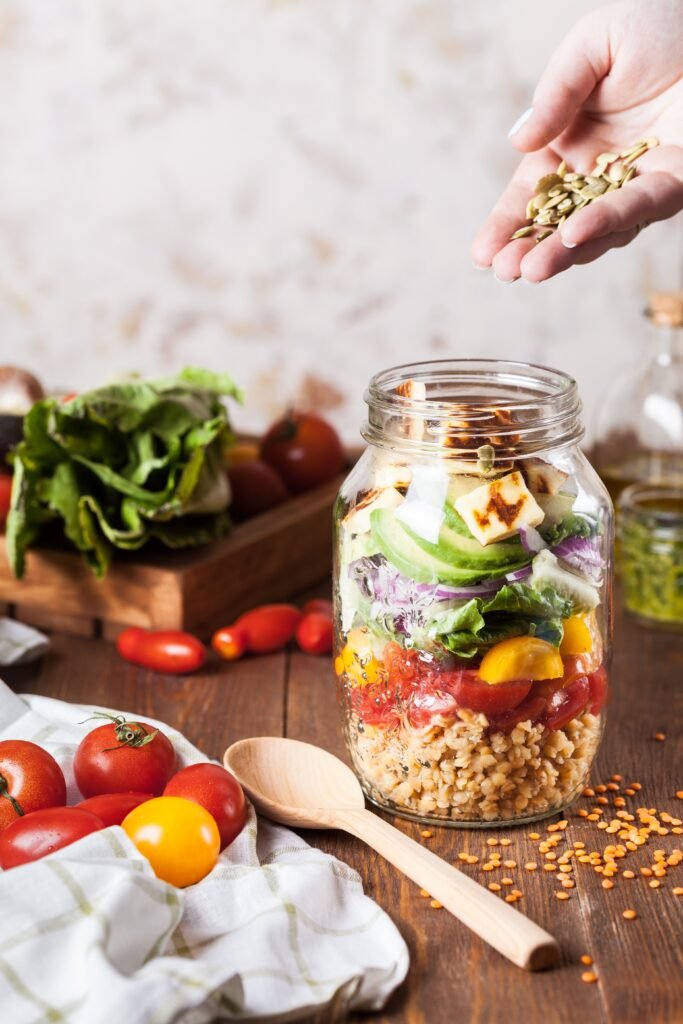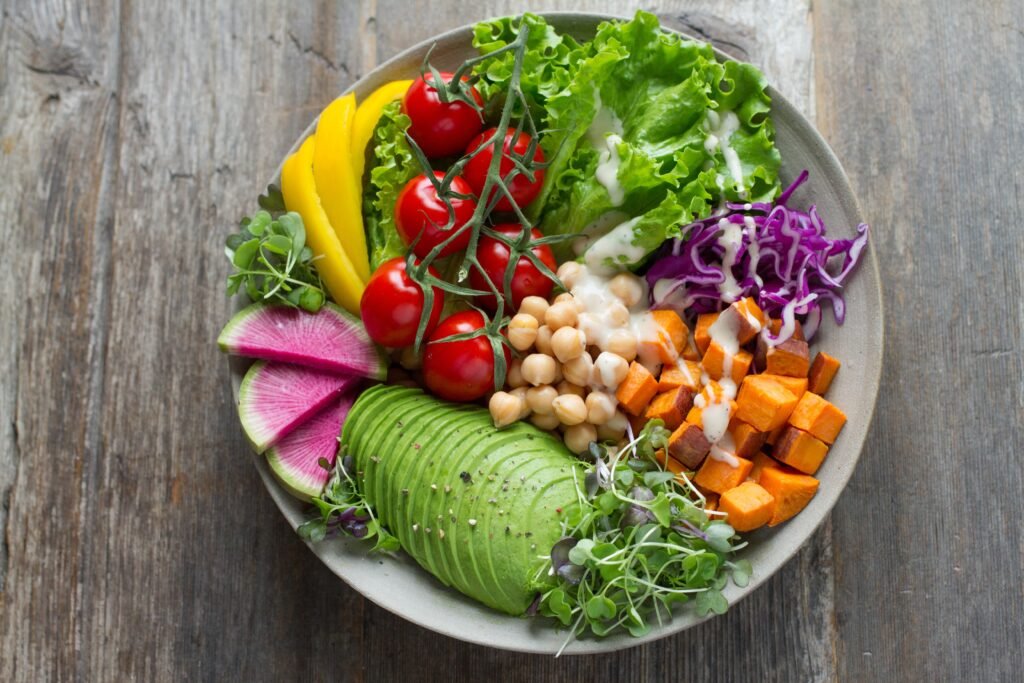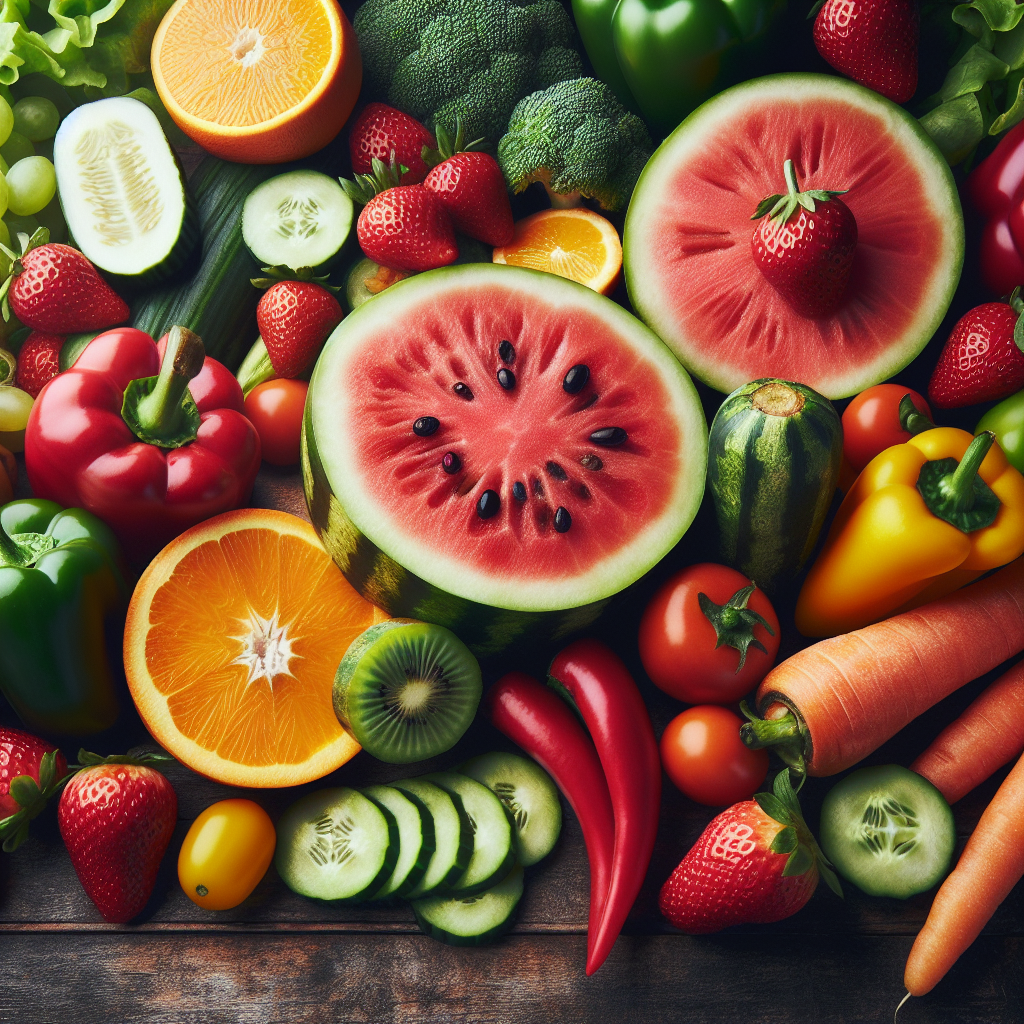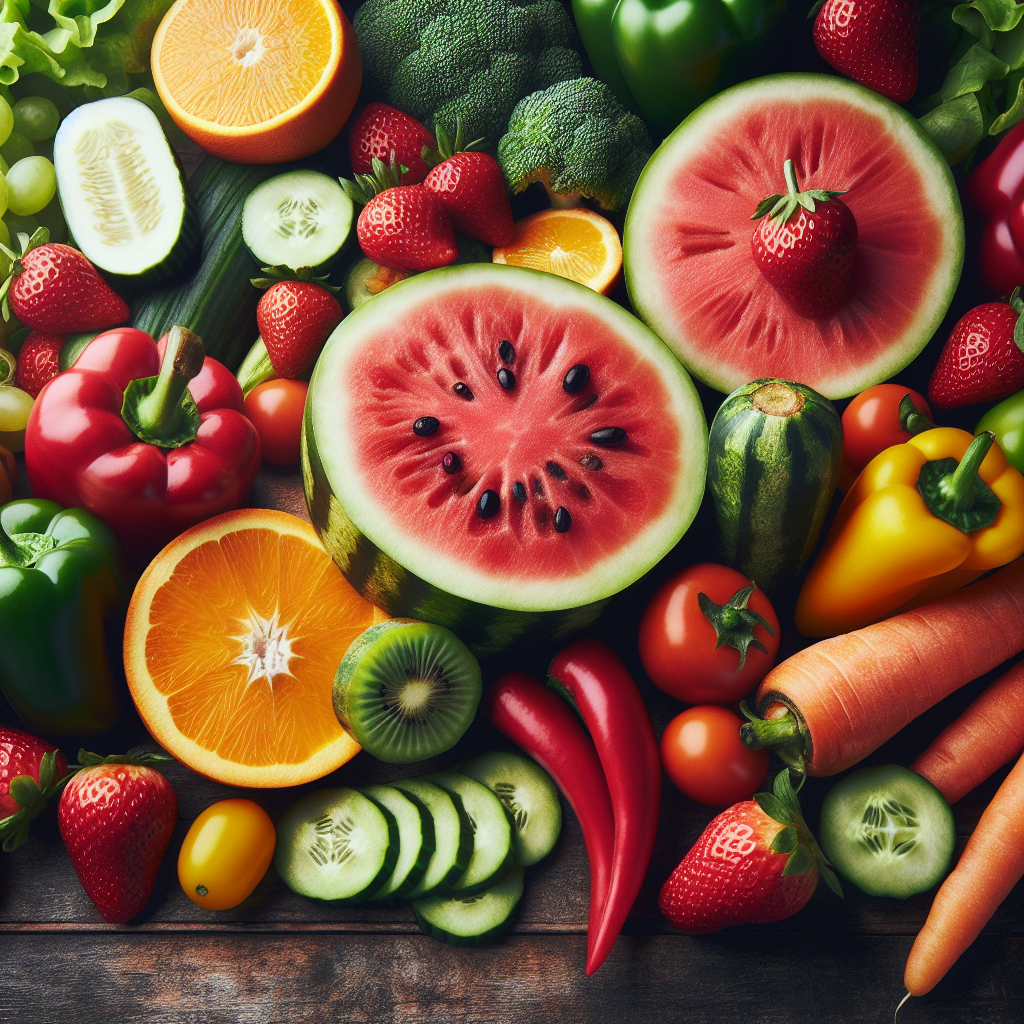Looking to maintain a healthy diet without sacrificing taste or satisfaction? Look no further than low-calorie fruits and vegetables. Packed with essential vitamins and minerals, these dietary superstars not only help you shed those extra pounds but also promote overall well-being. With a wide variety of options to choose from, you can enjoy guilt-free snacking while fueling your body with the nutrients it needs. Whether you’re a fruit lover or a vegetable aficionado, this article will guide you through some of the mouthwatering options that will leave you feeling nourished and satisfied.

Benefits of a Low-Calorie Diet
A low-calorie diet can offer a range of incredible benefits for your overall health and wellbeing. By reducing your calorie intake, you can experience weight loss and a lower risk of obesity, which is linked to many chronic health conditions. In addition to aiding in weight management, a low-calorie diet can also improve digestion and increase nutrient intake, ensuring your body gets the nourishment it needs. Let’s explore these benefits further to understand why incorporating low-calorie fruits and vegetables into your diet is a smart choice.
Lower Risk of Obesity
Obesity is a growing concern in many parts of the world, and it’s associated with a higher risk of various health problems, including heart disease, diabetes, and certain types of cancer. By opting for a low-calorie diet, you can effectively reduce your risk of obesity. When you consume fewer calories than your body needs, it starts utilizing stored fat as an energy source, leading to weight loss. By making a conscious effort to choose low-calorie foods, you’re taking an important step towards maintaining a healthy weight and reducing your risk of obesity-related conditions.
Improved Digestion
Digestive issues like bloating, indigestion, and constipation can be incredibly uncomfortable and irritating. By incorporating low-calorie fruits and vegetables into your diet, you can significantly improve your digestion. Many low-calorie fruits and vegetables are high in fiber, which is essential for promoting regular bowel movements and preventing constipation. Additionally, the high water content in these foods helps to keep your digestive system hydrated and functioning optimally. By choosing low-calorie options, you can support a healthy and efficient digestive system.
Increased Nutrient Intake
One of the key advantages of a low-calorie diet is that it encourages you to prioritize nutrient-dense foods. Fruits and vegetables are excellent sources of essential vitamins, minerals, and antioxidants that are vital for your overall health. By opting for low-calorie varieties, you’re getting the best of both worlds – satisfying your hunger while providing your body with necessary nutrients. These foods are packed with goodness and can work wonders for your immune system, skin health, and energy levels. Choosing low-calorie options allows you to maximize your nutrient intake and prioritize your wellbeing.
Low-Calorie Fruits
When it comes to incorporating low-calorie options into your diet, fruits are an excellent choice. They are naturally sweet, refreshing, and provide a multitude of health benefits. Here are some low-calorie fruits that you can enjoy guilt-free:
Watermelon
Watermelon is not only incredibly refreshing, but it’s also low in calories. With just 30 calories per cup, you can indulge in this juicy fruit without worrying about your waistline. Watermelon also boasts high water content, making it an excellent choice for staying hydrated, especially during hot summer months.
Berries
Berries, including strawberries, blueberries, raspberries, and blackberries, are nutritional powerhouses. These tiny fruits are packed with antioxidants, fiber, and vitamins while being low in calories. Snacking on a handful of berries can satisfy your sweet tooth and provide a nutritious boost to your diet.
Apples
An apple a day keeps the doctor away, and they also happen to be low in calories! With less than 100 calories per medium-sized apple, it’s a fantastic choice for a snack. Apples are also high in fiber, which can help you stay full for longer and support healthy digestion.
Oranges
Oranges are not only a great source of vitamin C but are also low in calories. With just around 60 calories in a medium-sized orange, it’s a perfect choice to enjoy as a mid-day snack or include in a fruit salad.
Grapefruit
Grapefruit is a tangy and refreshing citrus fruit that makes a delightful addition to any low-calorie diet. With around 50 calories per serving, this fruit is packed with fiber and vitamin C, offering numerous health benefits.
Low-Calorie Vegetables
Vegetables are a crucial part of any healthy diet and are excellent options for those following a low-calorie plan. They are packed with essential nutrients while being low in calories, making them a perfect choice for those aiming to lose weight or maintain a healthy lifestyle. Here are some low-calorie vegetables that you can incorporate into your meals:
Leafy Greens
Leafy greens, such as spinach, kale, and lettuce, are nutritional powerhouses that should be a staple in a low-calorie diet. With their high fiber and water content, leafy greens are incredibly filling while being low in calories. They are also packed with vitamins, minerals, and antioxidants, making them a great choice to boost your nutrient intake.
Cucumbers
Cucumbers are not only hydrating but also low in calories. Their crunchy texture and refreshing taste make them an excellent addition to salads or as a snack. Cucumbers also contain antioxidants and vitamins that promote healthy skin and overall wellbeing.
Bell Peppers
Bell peppers come in a variety of colors and are a vibrant addition to any low-calorie diet. These flavorful vegetables are low in calories, high in fiber, and packed with vitamins and antioxidants. Whether you enjoy them raw, sautéed, or stuffed, bell peppers provide a delicious way to incorporate low-calorie options into your meals.
Mushrooms
Mushrooms are a versatile vegetable that can add depth and flavor to a variety of dishes. They are low in calories and fat while being packed with essential nutrients. Additionally, mushrooms contain antioxidants that contribute to their health benefits. Whether you sauté them, grill them, or use them as a meat substitute, mushrooms are an excellent choice for a low-calorie diet.
Zucchini
Zucchini is a popular low-calorie vegetable that can be used in various dishes. It’s low in calories, high in water content, and a good source of vitamins and minerals. As a versatile vegetable, zucchini can be spiralized into noodles, added to soups, or used as a substitute for higher-calorie ingredients in baked goods.
Incorporating Low-Calorie Fruits and Vegetables into Your Diet
The great thing about low-calorie fruits and vegetables is that they can be easily incorporated into your everyday meals and snacks. Here are some ideas on how you can enjoy these nutritious options:
Snacks and Smoothies
When you’re looking for a quick and healthy snack, low-calorie fruits are an excellent choice. You can enjoy them on their own or pair them with a protein-rich snack like a handful of nuts or a spoonful of nut butter. You can also blend low-calorie fruits, such as berries or watermelon, into a refreshing smoothie with some low-fat yogurt or a plant-based milk alternative.
Salads and Side Dishes
Filling your plate with a colorful array of low-calorie vegetables is a great way to boost your nutrient intake while keeping your calorie count low. Add leafy greens, cucumbers, bell peppers, mushrooms, and zucchini to your salads, along with a lean protein source like grilled chicken or tofu. These vegetables can also serve as tasty and nutritious side dishes to complement your main course.
Vegetable-based Main Courses
For those looking to reduce their meat intake or follow a plant-based diet, low-calorie vegetables can take center stage as main course ingredients. Use zucchini noodles or spaghetti squash as a healthy alternative to pasta, whip up a delicious stir-fry with an assortment of vegetables, or make flavorful stuffed bell peppers or mushrooms with a variety of fillings.

Nutritional Value of Low-Calorie Fruits and Vegetables
In addition to their low-calorie content, fruits and vegetables offer a range of essential nutrients that are crucial for your overall health. Let’s take a closer look at the nutritional value of these beneficial foods:
Vitamins and Minerals
Low-calorie fruits and vegetables are rich sources of vitamins and minerals that your body needs to function optimally. They contain a variety of vitamins, including vitamin C, vitamin K, vitamin A, and various B vitamins. These vitamins play key roles in supporting immune function, maintaining healthy skin, promoting good vision, and supporting brain health.
Fiber Content
Fiber is an essential component of a healthy diet, and low-calorie fruits and vegetables are excellent sources of this nutrient. Fiber aids in digestion, helps regulate blood sugar levels, and promotes feelings of fullness. By choosing low-calorie options, you can increase your fiber intake and promote a healthy digestive system.
Antioxidants
Fruits and vegetables are packed with antioxidants, which are compounds that help protect your cells from damage caused by harmful molecules called free radicals. These antioxidants have been linked to a reduced risk of chronic diseases, such as heart disease and certain types of cancer. By incorporating low-calorie fruits and vegetables into your diet, you can provide your body with a wide range of these beneficial compounds.
Tips for Choosing and Storing Low-Calorie Produce
To fully benefit from low-calorie fruits and vegetables, it’s important to choose and store them properly. Here are some tips to ensure you get the most out of your produce:
Selecting Fresh Fruits and Vegetables
When selecting low-calorie fruits and vegetables, opt for those that are fresh and ripe. Look for bright colors, firm textures, and avoid any signs of bruising or mold. You can also try to buy local and in-season produce for the best flavor and nutritional value.
Proper Storage Techniques
To maximize the shelf life of your low-calorie produce, it’s essential to store them correctly. Most fruits are best kept at room temperature and can last longer when stored away from sunlight. Vegetables, on the other hand, typically do well when stored in the refrigerator. Ensure proper airflow and avoid storing fruits and vegetables together as some types can release gases that speed up the ripening process.

Potential Drawbacks of a Low-Calorie Diet
While a low-calorie diet can offer numerous benefits, it’s important to be aware of potential drawbacks. Here are some potential challenges:
Lack of Satiety
Reducing your calorie intake can sometimes leave you feeling less satisfied after meals, especially if you’re used to consuming larger portions. To combat this, focus on incorporating high-fiber foods, lean proteins, and healthy fats into your meals to promote satiety and prevent feelings of hunger.
Potential Nutrient Deficiencies
Restricting your calorie intake may increase the risk of nutrient deficiencies if you’re not careful with your food choices. It’s important to ensure you’re getting a wide variety of low-calorie fruits and vegetables to meet your nutritional needs. Consider consulting with a registered dietitian to ensure you’re meeting all your nutrient requirements.
Adherence Challenges
Following a low-calorie diet requires dedication and discipline, which can sometimes be challenging. It’s important to find a balance that works for you and make sustainable changes to your eating habits. Including a variety of low-calorie fruits and vegetables can help add flavor and satisfaction to your meals, making it easier to stick to your diet in the long run.
Sample Low-Calorie Meal Plan
To help you get started on your low-calorie journey, here’s a sample meal plan that incorporates a variety of low-calorie fruits and vegetables:
Breakfast
- A bowl of oatmeal topped with fresh berries and a sprinkle of nuts.
- A side of sliced oranges or grapefruit.
- A cup of green tea or a glass of water.
Lunch
- A large salad with mixed greens, cucumber slices, cherry tomatoes, and grilled chicken or tofu.
- A drizzle of olive oil and lemon juice for dressing.
- A side of fresh-cut watermelon.
Snack
- A handful of baby carrots or cucumber slices.
- A small container of low-fat Greek yogurt for dipping.
Dinner
- Grilled salmon or baked tofu with a side of roasted bell peppers and zucchini.
- Quinoa or brown rice as a base.
- A side salad with leafy greens and your choice of low-calorie vegetables.
- A glass of infused water with lemon and mint.
Dessert
- A bowl of mixed berries topped with a dollop of low-fat whipped cream or a sprinkle of dark chocolate chips.

Conclusion
Incorporating low-calorie fruits and vegetables into your diet can provide numerous benefits for your health and wellbeing. From the lower risk of obesity to improved digestion and increased nutrient intake, these nutrient-dense options are a smart choice for a healthy lifestyle. Whether you enjoy them in salads, smoothies, or as main course ingredients, low-calorie fruits and vegetables offer a wide range of flavors and textures to satisfy your taste buds. So, start adding more of these low-calorie powerhouses to your meals and embrace the positive impact they can have on your overall health.

